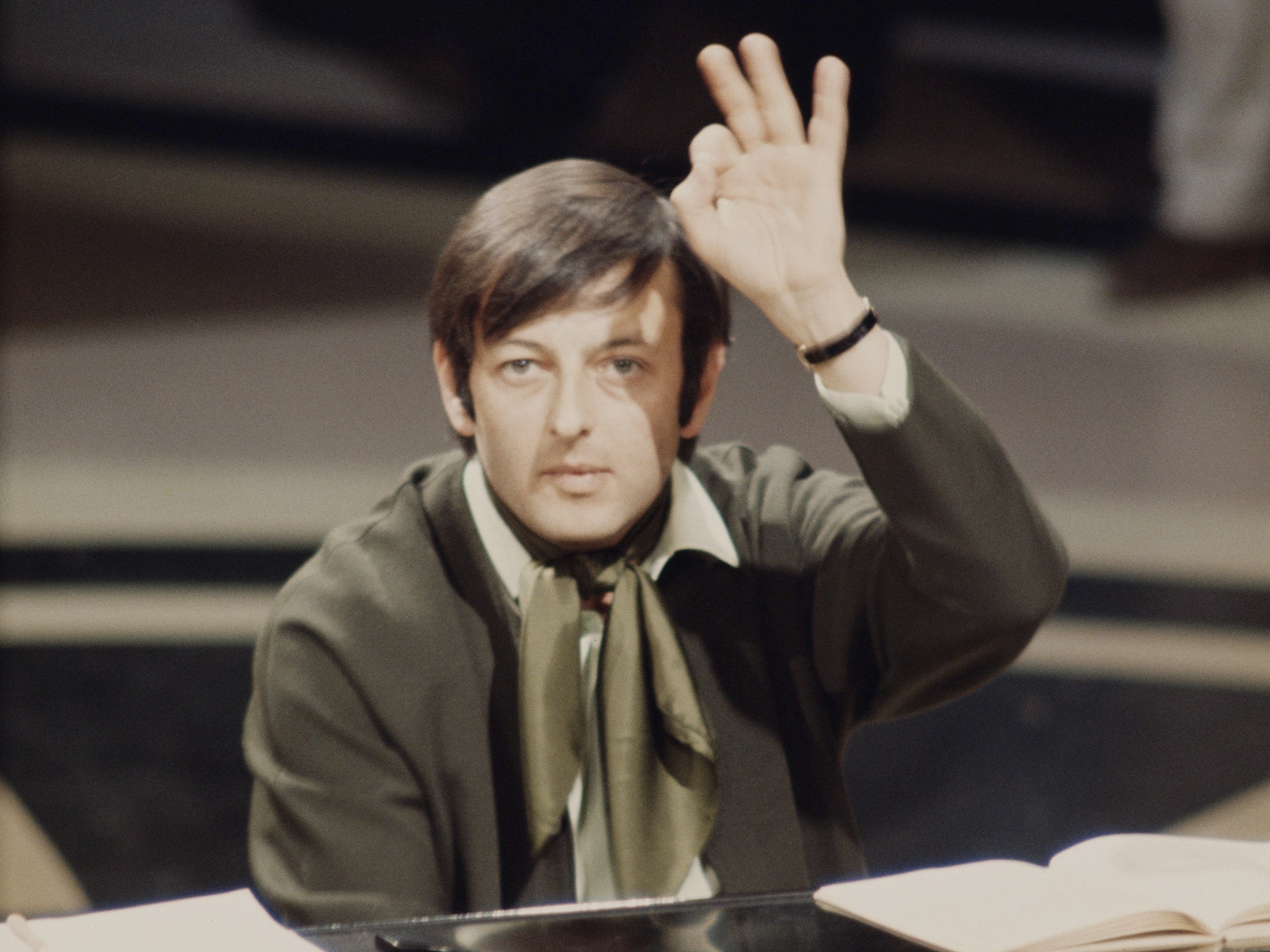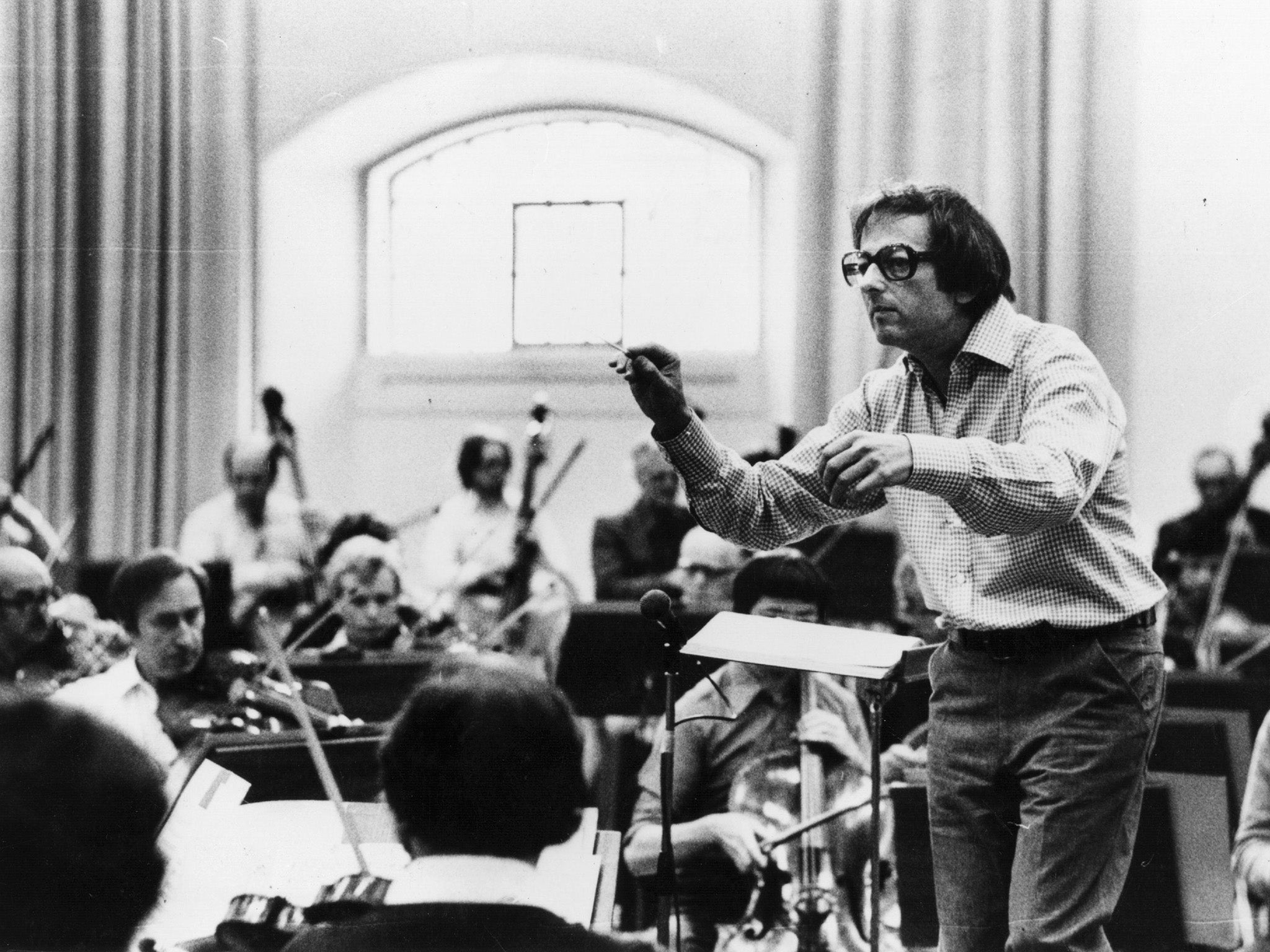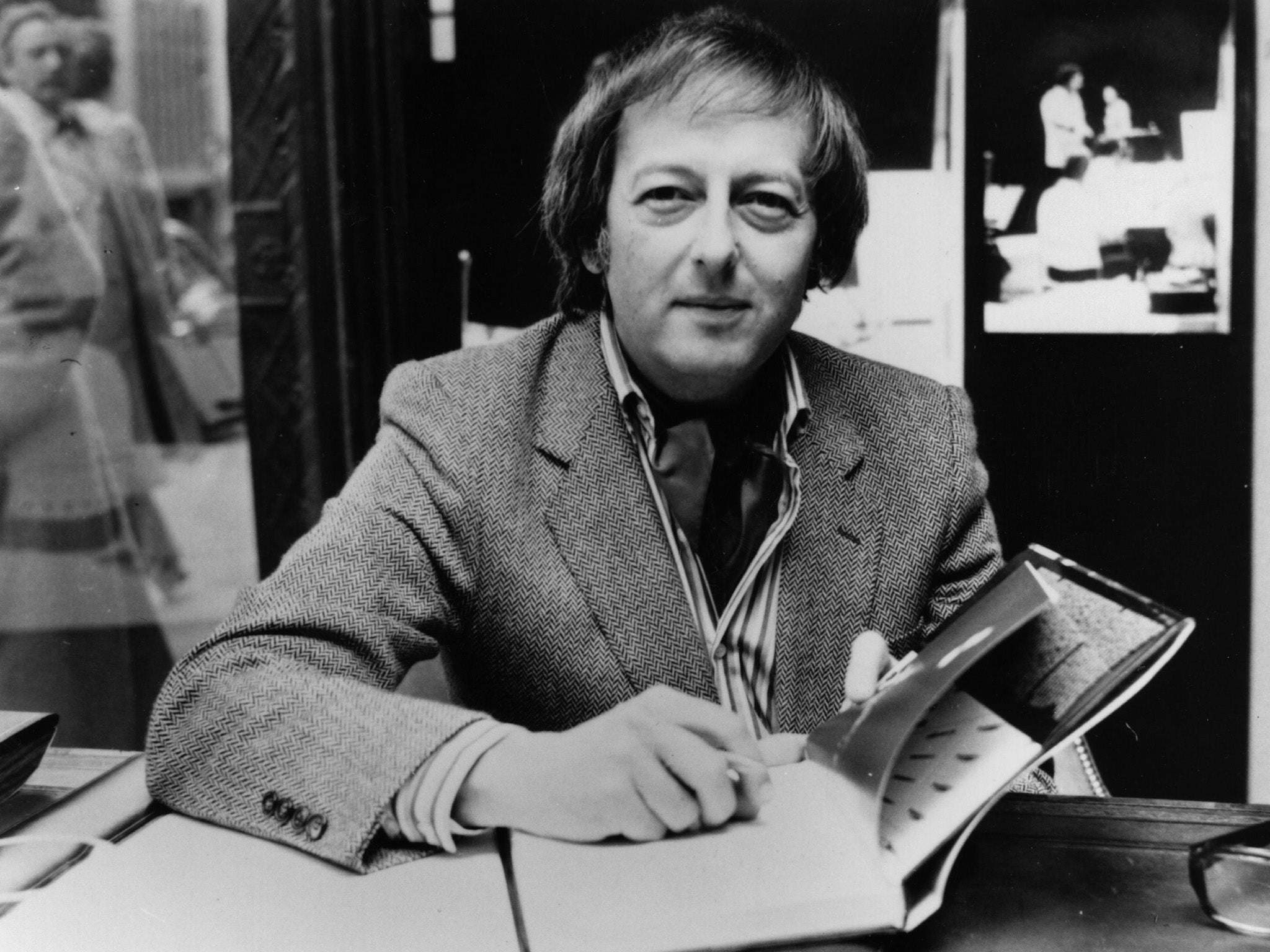Andre Previn obituary: musical polymath and Oscar-winning composer and conductor
He used his celebrity and skill as a raconteur to bring wider attention to classical music

Andre Previn was a musical polymath who began composing for Hollywood at 16 and won a quartet of Oscars, and had additional careers as a jazz piano phenomenon and major symphonic conductor. All the while, he forged a public identity as a jetsetter who counted actor Mia Farrow among his five wives.
Previn, who has died aged 89, was considered something of a playboy as he leapt with swaggering allure between Hollywood and the directorship of some of the world’s leading orchestras, often using his celebrity and skill as a raconteur to bring wider attention to classical music.
He won 11 Grammy awards over half a century – for his film music, for the records he made with jazz ensembles and orchestras he led and, in 2010, for lifetime achievement.
“The most impressive aspect of Previn’s career was the ease with which he moved through the full spectrum of American music – whether jazz or classical, movie soundtracks or TV scores, Hollywood or Broadway, overtly commercial gigs or artistically refined projects,” music historian Ted Gioia says.
“And he could do this as composer, conductor or performer as the situation warranted. In some ways, he epitomises the great era of middlebrow art in America, when audiences rewarded artists who crafted popular art with a dose of aesthetic sophistication, and packaged it for crossover success.”
Sporting a Beatles-style haircut, seemingly “hip” and modishly dressed, he was a favourite of the gossip columnists and paparazzi from the late 1960s after he took up with Farrow, who was recently divorced from Frank Sinatra.
Previn revelled in stories about the personalities and absurdities of Hollywood. While arranging and conducting music for the Lerner and Loewe musical Gigi (1958), one of his Oscar-winning assignments, he said director Vincente Minnelli ordered up 24 black swans to swim on a lake in Paris. Instead of the word for swans, “cygnes”, Minnelli in muddled French accidentally requested “singes”, monkeys.
“Try setting that to music,” Previn recalled years later.
His gossipy memoir of his years working – and playing – in Hollywood, No Minor Chords (1991), recounted his youthful near-dalliance with screen siren Ava Gardner, who was “the kind of beautiful that turned men into Jell-O molds.”
“She listened to me play, quite attentively,” he wrote, “and then asked an incredible question: ‘Would you like to take me home later?’
“Well, I was 17 and I simply could not allow myself to put a subtext connotation to this, so I asked: ‘You mean you don’t have a ride home?’ Ava gave me a long, searching look, saw that I was serious, excused herself and got up from the piano bench.”
Far from a sophisticate at the time, he had arrived in Hollywood only a few years earlier without knowing a word of English. His parents – affluent and cultured German Jews – had fled Nazi-era Berlin at the cost of their possessions. Although near-penniless, they made sure their son, widely recognised as a prodigy, continued his piano and composition studies.
In Los Angeles, 12-year-old Andrw became smitten with jazz pianists such as the lightning-fingered Art Tatum. He said he spent days transcribing Tatum’s recording of “Sweet Lorraine” with the same fervour he formerly reserved for Mozart symphonies.
As a pianist and as a student conductor, Previn played with radio and symphony orchestras. At 16 he cut a piano jazz album that was a surprise hit and “sold something like 200,000 copies”, he said. He joked that success was due in large part to the fact that “it didn’t have my picture on the cover”.

He soon began arranging for Metro-Goldwyn-Mayer musicals. “They were always looking for somebody who was talented, fast and cheap and, because I was a kid, I was all three,” he later quipped.
He quickly adapted his skills to movie orchestration and, at 18, became a composer-conductor for MGM. His first official credit was for a 1949 Lassie picture, which he dismissed as inane but nonetheless “tailor-made for music, since the dialogue was sparse in favour of a lot of barking in picturesque meadows”.
It was the start of a remarkably prolific and versatile career in Hollywood. He wrote the original score of the musical It’s Always Fair Weather (1955), best remembered for Gene Kelly’s ballet on rollerskates, and brought cascading octaves and snarling dissonances to the powerful 1962 film adaptation of Eugene O’Neill’s drama Long Day’s Journey Into Night (1962).
In all, Previn scored, played in or conducted more than 50 films, winning Academy Awards for adapting the music of Broadway shows Gigi, Porgy and Bess (1959), Irma La Douce (1963) and My Fair Lady (1964).
Meanwhile, Previn took his hard-driving bebop jazz trio to the Newport Jazz Festival, Jazz at the Philharmonic in Los Angeles and other major venues. Previn worked with drummer Shelly Manne on one of the first jazz albums of a Broadway score, for My Fair Lady (1956), which sold hundreds of thousands of copies.
In addition, Previn accompanied Doris Day on an album, Duet, that brought out a sexy swinging side to a pop star. The magazine JazzTimes called the now-classic release, made in 1961, “exquisite”.
Despite his renown in Hollywood, Previn said his transition to concentrate more intensively on classical music was rocky because he was not accorded what he considered his full due as a “serious” musician.
“There’s a small group of music critics in the States who will forgive you anything – jazz, a long prison term, or what have you – anything but scoring a Hollywood musical,” he said in 1968.

He began by recording piano and chamber music pieces for Columbia Records that won him a guest conductorship with the St Louis Symphony Orchestra.
From 1968 to 1979, he was principal conductor of the London Symphony Orchestra, where he was credited with using his drawing power to bring the classics to the masses. He recorded complete cycles of the symphonies of Ralph Vaughan Williams, Sergei Rachmaninoff and Sergei Prokofiev, among others.
To promote the LSO, Previn appeared on the beloved Morecambe and Wise TV show, allowing his name to be mangled as “Andrew Preview”.
From 1976 to 1984, he was music director of the Pittsburgh Symphony Orchestra and was credited with improving the playing standards enormously while also hosting the public television series Previn and the Pittsburgh. His tenure as music director of the Los Angeles Philharmonic in the late 1980s was stormy, mostly because of quarrels with the orchestra’s strong-willed manager Ernest Fleischmann.
Throughout his conducting career, Previn continued to compose. A 1970 concerto for classical guitarist John Williams was “a warm, approachable work with enthralling passages”, according to The Guardian.
His other works included a piano concerto, commissioned by conductor and pianist Vladimir Ashkenazy; a cello sonata, written for Yo-Yo Ma; and an opera based on Tennessee Williams’ A Streetcar Named Desire, which was written for soprano Renee Fleming.
Streetcar (1998) was Previn’s largest work. The opulent score was generally admired but it seemed to be something of a mismatch with the fierce, primal Williams play. Put another way, lines such as ”Hey, toots! Get out of the bathroom!“ sounded almost comical when scored fastidiously for baritone and full orchestra.
Previn was born Andreas Ludwig Priwin in Berlin in 1929, although some sources have his last name as Prewin. His father, Jacob, was a lawyer, judge and amateur pianist who recognised his son’s musical abilities early and enrolled him at the Berlin Conservatory until it was officially purged of “non-Aryan” students in 1938.
One day, the family left Germany on the pretext of a weekend visit to Paris. They never went back, even though it meant abandoning all their possessions. Once in Los Angeles, an American-born relative, Universal Studios musical director Charles Previn, helped Andre find work at rival MGM.
Previn’s first marriage, to singer Betty Bennett, produced two daughters. He was next married to lyricist Dory Langan, with whom he had a daughter and wrote many songs, including “You’re Gonna Hear From Me”, which was recorded by singers such as Sinatra and Barbra Streisand.
Dory’s mental breakdown and Andre’s affair with Farrow ended the marriage. Dory Previn later launched a career as a performer with “Beware of Young Girls”, her song widely perceived to be aimed at Farrow.
Farrow gave birth to twin sons shortly after she wed Previn in 1970. Before divorcing nine years later, they had another biological child and adopted three orphans, including Korean-born Soon-Yi.
Previn severed ties to Soon-Yi after her relationship with – and eventual marriage to – filmmaker Woody Allen. “She does not exist,” Previn he said in 2013.
He had a son with his fourth wife, Heather Sneddon, and the marriage ended in 1999. Previn was married to the celebrated German-born violinist Anne-Sophie Mutter from 2002 to 2006. He received an honorary knighted from the Queen in 1996
There may have been more daring jazz musicians, more original classical composers and more persuasive and effective orchestra conductors active at any given time, but few, if any, musicians managed to combine all of these qualities at such a high level over the course of such a long career.
Previn received 13 Oscar nominations but said his first – for best scoring of a musical picture, Three Little Words (1950) – was the only time he remembered where he was when he got the news: digging a latrine trench in the army.
He recalled telling the orderly who ran out to alert him: “Go away and let me get on with the important business at hand.”
Andre Previn (Andreas Ludwig Priwin), pianist, conductor and composer, born 6 April 1929, died 28 February 2019
© The Washington Post
Join our commenting forum
Join thought-provoking conversations, follow other Independent readers and see their replies
Comments
Bookmark popover
Removed from bookmarks